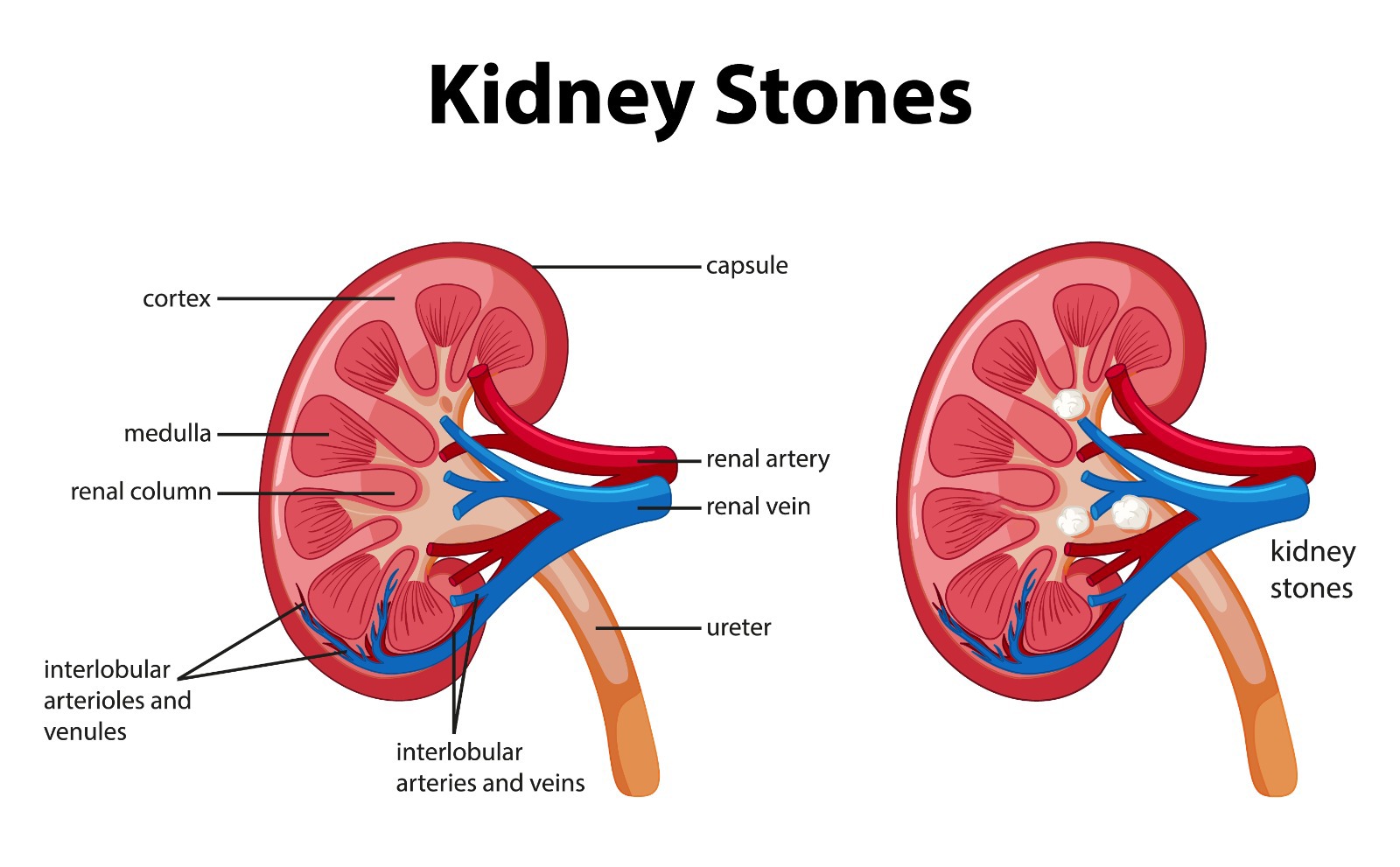
Kidney stones, also known as renal calculi, are solid masses that form in the kidneys. They are composed of various substances, such as calcium, oxalate, uric acid, and cystine. Kidney stones can vary in size, ranging from tiny grains to larger stones that can obstruct the urinary tract.
There are different types of kidney stones, each with its own unique composition. The most common types include:
- Calcium Stones: These stones are the most prevalent and are primarily composed of calcium oxalate or calcium phosphate.
- Uric Acid Stones: High levels of uric acid in the urine can lead to the formation of uric acid stones.
- Struvite Stones: These stones form as a result of urinary tract infections and can grow rapidly, causing significant complications.
- Cystine Stones: Cystine stones are rare and occur in individuals with a hereditary disorder called cystinuria.
Several factors contribute to the development of kidney stones, including:
- Dehydration: Insufficient fluid intake can lead to concentrated urine, increasing the risk of stone formation.
- Diet: A diet high in sodium and animal protein can contribute to stone formation.
- Family History: Individuals with a family history of kidney stones are more susceptible to developing them.
- Medical Conditions Certain medical conditions, such as urinary tract infections, gout, and digestive disorders, can increase the likelihood of kidney stone formation.
The symptoms of kidney stones may vary depending on the stone's size and location. Common signs and symptoms include:
- Severe pain in the back or side, often radiating to the lower abdomen and groyne.
- Hematuria (blood in the urine)
- Frequent urination.
- Cloudy or foul-smelling urine.
- Nausea and vomiting
FAQ's
Services
- Kidney Stone
- Kidney Transplant Evalution & Surgery
- BHP
- Uro-Oncology
- Kidney Cancer
- Penis Cancer
- Bladder Cancer
- Prostate Cancer
- Testicular Cancer
- Urethral cancer
- Sexual dysfunction & Male infertility
- Erectile dysfunction and Impotence
- Andrology
- Robotic Surgery
- RIRS
- Blood in Urine
- Urinary Tract Infection
- Urinary Incontinence
- Prostate Gland
- Pediatric Urology & Laparoscopy
- Aging Male
- Female Urology
- Penis Enlargement
- Varicocele
- A-V Fistula & Ralated Vascular Access Surgery
